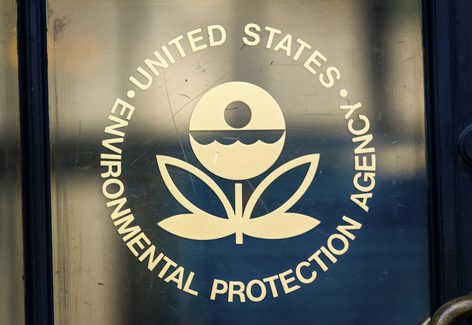EPA Pushes Back PFAS Reporting Deadline Over Budget Constraints
Editors carefully fact-check all Consumer Notice, LLC content for accuracy and quality.
Consumer Notice, LLC has a stringent fact-checking process. It starts with our strict sourcing guidelines.
We only gather information from credible sources. This includes peer-reviewed medical journals, reputable media outlets, government reports, court records and interviews with qualified experts.

The Environmental Protection Agency is now planning an eight-month delay to a key PFAS reporting deadline.
The agency stated in the Federal Register last week that the reporting period for PFAS data, previously scheduled for Nov. 12, is unlikely to start on time due to budget constraints. During this period, manufacturers and importers of per- and polyfluoroalkyl substances are required to submit data from 2011 to 2022 on these chemicals.
The reporting period, which is expected to provide the EPA and public with a significant amount of data about forever chemicals, will now begin on July 11.
The EPA initially established this new reporting requirement in September 2023 as part of the Toxic Substances Control Act (TSCA) to gain more information on PFAS and their impacts. The EPA hoped to learn about companies’ PFAS uses, volumes made, byproducts produced, environmental and health effects, worker exposure and more.
While consumers have used PFAS for decades, there has been an increased focus on their impact in recent years due to mounting evidence that ties these chemicals to serious health issues.
PFAS lawsuits have claimed that forever chemicals have contaminated the environment and drinking water, causing cancer in some people.
Why the EPA Postponed the PFAS Reporting Period
The EPA said that the postponement of the start of the reporting period was due primarily to budget restraints.
The TSCA program saw a $5 million budget reduction compared to last year, altering how quickly the agency could prepare the reporting process.
“EPA’s TSCA program has had resource constraints for years, which has delayed a number of important efforts, including full implementation of this rule,” the EPA said in an update.
These budget changes affected the agency’s ability to complete the software needed for these reports in time, necessitating a delay. The plan is now for the reporting period to begin on July 11 of next year, with a deadline of January 2026 for most companies. Some small businesses, however, will have until July 11, 2026.
PFAS Ties to Cancer, Health Concerns Increase Scrutiny
Consumers have used PFAS since the 1940s. These chemicals are present in many everyday items thanks to their water repellant properties. But scrutiny surrounding these forever chemicals has grown in recent years over health concerns and their virtual indestructibility.
Research has revealed a link between a variety of health effects and PFAS exposure. These health issues range from asthma to conditions like prostate or kidney cancer.
Many concerns around PFAS come from drinking water exposure. According to the New Jersey Department of Health, these chemicals can enter water supplies from industrial releases, sewage discharges and landfill leaching.
Military bases also have a historical connection to PFAS exposure. Just last month, the EPA and Army announced a joint pilot project to test for forever chemicals in private wells near certain bases.
Numerous lawsuits have been filed over PFAS water exposure, with conglomerate 3M agreeing to a $10.3 billion settlement in 2023 after plaintiffs accused them of polluting drinking water with forever chemicals.
More recently, BASF Corporation agreed to a $316.5 million settlement in May.
Editor Lindsay Donaldson contributed to this article.